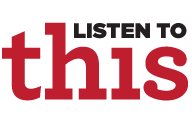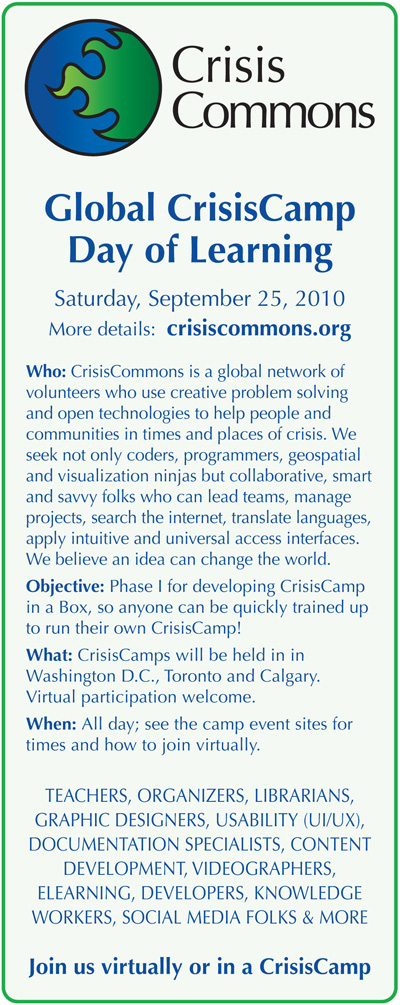I’m on an adventure to learn more about open governance for communities. For the past 10 months, I’ve volunteered with many amazing people to build CrisisCommons. We are a new volunteer technical community aimed at helping crowdsource information and technology in times of crisis. Learning and researching practices for open communities has brought me near and far talking with technical communities such as Mozilla or my peers who attended the International Conference on Crisis Mapping. I’ve spoken with experts at Creative Commons and with consultant David Eaves. As a co-lead for the CrisisCommons.org Community Working Group, I consider it a priority to learn about community governance.
Fortunately, I found and enrolled in the Peer-to-Peer University (P2PU) Open Governance course. We collaborate online and learn from each other. In the coming weeks, I will be posting items for the course.
What do Baboons, transgenders, and bent fox ears have in common with Open Governance of Communities?
Our first week’s assignment was to write about Radiolab’s podcast: New Normal? The show seeks to identify change triggers in communities. Using two separate scientific studies, they pose the question that a baboon troupe and a breed of foxes can change with alterations to patterns resulting in culling aggressive creatures. Another example talks about the town of Silvertown, Oregon accepting a gradual change of a transgender resident. “Under the right circumstances, a small town can change.” What can trigger change in a community?
What are some of the norms in communities you are a participant in that affect governance of that community?
CrisisCommons is just beginning to formalize our strategic governance. It is both flexible and fragile. As an open community we respond to governance questions via our CrisisCommons google group. There is also a wiki open for edits.
The norm is that there is no norm yet. Anyone can contribute and the decisions are in flux.
The same stands for CrisisCamps. We have some model examples to share. We are working on CrisisCamp in a Box – a project to help mentor and share camp standards. Again, the norm is that all content is open for discussion and change.
How are these norms communicated to new joiners?
We need to work how to communicate norms to new joiners. Our community culture is evolving with each response action. We try to mentor new CrisisCamp cities. When it comes to individual volunteers, we need to improve on communicating norms and facilitating volunteer experiences.
How important is it to explicitly state the norms? How much can be picked up from “observing”?
We know that standards would help our community, but too much structure might not be accepted. There is a balance yet to be struck between more governance and less governance proponents. CrisisCommons needs to set a minimum frame of what and when we will respond and vice versa. This discussion is ongoing, but we know that clarity will help us grow.
Observing norms? Well, our community is evolving fast. I actually find this question hard. We need to make it more stable and clear so that there is potential for a volunteer to be able to “observe norms”. I consider that a 6 month goal for our community.
Note: Radiolab is partially funded by the Alfred P. Sloan Foundation. CrisisCommons is currently preparing our trustee proposal for the same organization. Small world.



